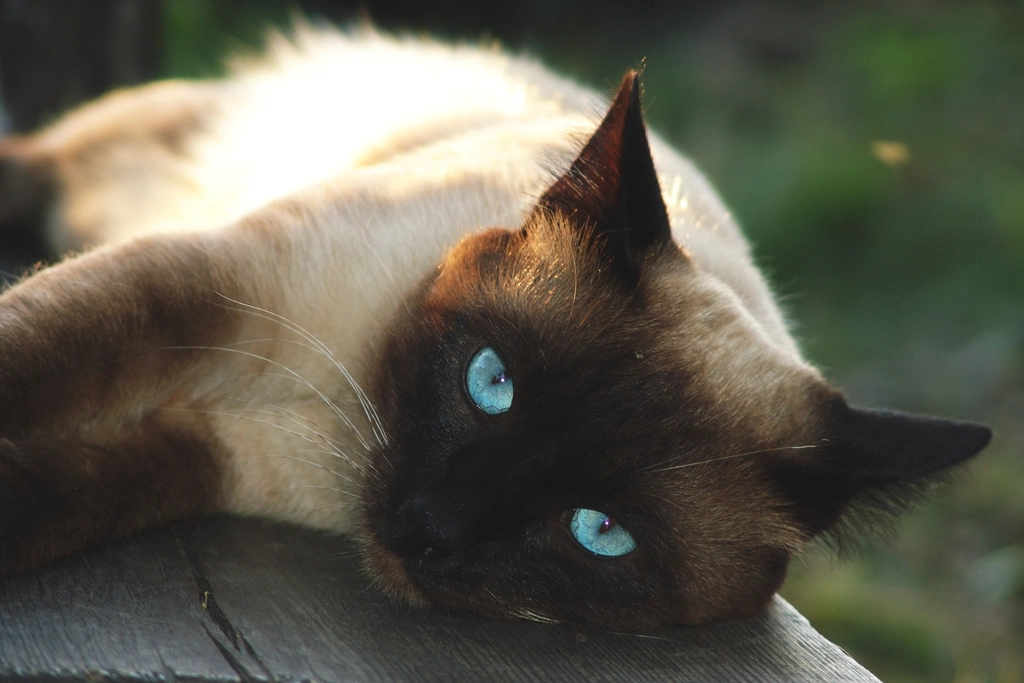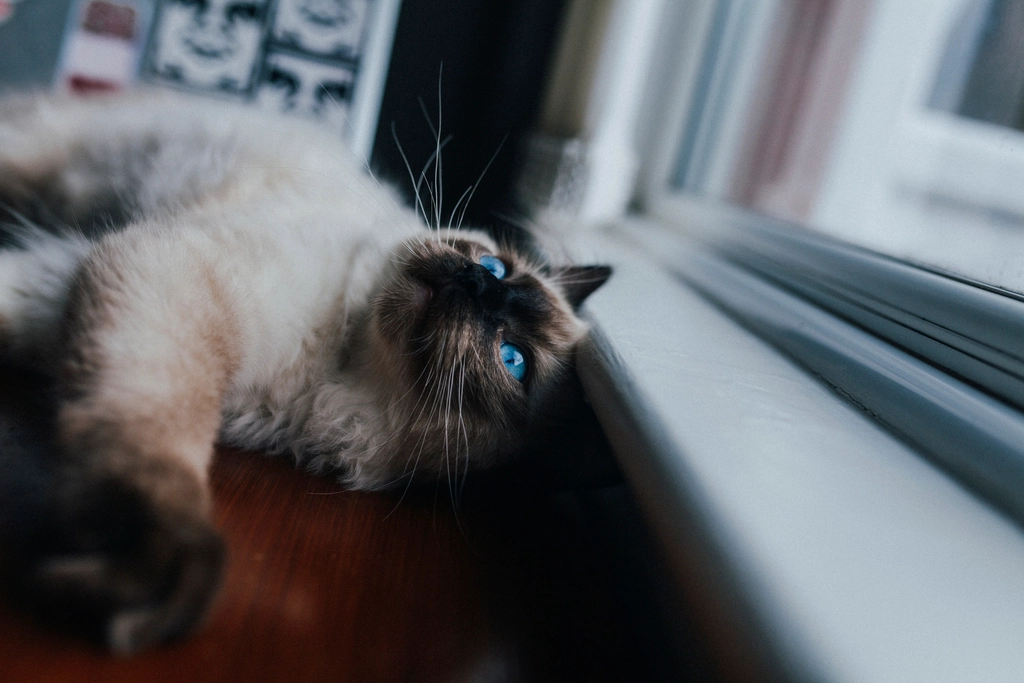Have you ever found yourself startled by the bold, expressive meows of a Siamese cat? Or perhaps you’ve wondered whether your own feline could ever match the constant chatter of a Siamese? The rumor that Siamese cats are the most talkative of all breeds is practically legendary among cat lovers. But is there any truth to this claim, or is it just another quirky cat myth? Let’s dive into the fascinating world of feline communication and explore if Siamese cats truly wear the crown for conversation.
The Myth of the Chattiest Cat

The idea that Siamese cats are unstoppable talkers has been passed down for generations. Many people claim that once you have a Siamese, you’ll never experience a quiet moment again. It’s a stereotype that has stuck around for decades, and it often makes potential cat owners either excited or hesitant to adopt this breed. But why does this myth exist? It could be because Siamese cats have a distinct, loud voice that stands out in a room, making them seem more vocal than their quieter counterparts. For some, their constant commentary is charming, while for others, it’s a source of sleepless nights.
Understanding Feline Communication

Cats have a unique way of communicating, both with humans and with each other. Unlike dogs, who use barks and body language, cats depend on a complex mix of meows, purrs, trills, and even silence to get their point across. Each sound can mean something different, from a simple greeting to a demand for food or attention. Siamese cats, in particular, seem to have mastered the “meow” in all its forms, making them stand out in the feline world. But why are some cats more vocal than others? Genetics, upbringing, and even environment play a big role.
A Brief History of Siamese Cats

Siamese cats have a rich and mysterious past that adds to their allure. Originating in Thailand (formerly Siam), these cats were once considered sacred and lived in royal palaces. Their striking appearance and bold personalities made them favorites among aristocrats and even royalty. Over centuries, their reputation for being vocal companions grew. Some say their talkative nature came from years of living closely with humans, learning to communicate their needs more effectively. It’s a history that’s as colorful as the cats themselves.
What Makes a Cat “Talkative”?

When people say a cat is talkative, what do they really mean? It’s not just about the number of meows, but also the range of sounds and the frequency of communication. Talkative cats tend to follow their owners around, offering commentary on everything from dinner time to their latest nap. Siamese cats are known for their wide variety of vocalizations, from sharp, demanding yowls to soft, melodic chirps. It’s almost like living with a tiny opera singer—one who never seems to lose their voice.
Siamese Meows: Loud and Proud

One thing’s for sure: Siamese cats don’t just meow—they announce themselves. Their voices are often described as raspy, deep, or even wailing, and they aren’t afraid to use them. Unlike other breeds that might quietly purr or trill, Siamese cats can fill a room with their presence. Some owners even joke that their Siamese sounds like a crying baby or a demanding toddler. Their meows aren’t just loud—they’re expressive, conveying everything from joy to frustration.
Comparing Breeds: Who Else Talks a Lot?

While Siamese cats have a reputation for being chatty, they’re not the only breed with a lot to say. Breeds like the Oriental Shorthair, Bengal, and Maine Coon are also known for their vocal personalities. However, the tone and style of their communication can be quite different. For example, Maine Coons might chirp and trill more than they meow, while Bengals often have a unique, almost bark-like call. Siamese cats, on the other hand, tend to be more direct and insistent, making their voices hard to ignore.
Personality and the Need to Be Heard

Siamese cats are famous for their extroverted personalities. They crave attention and interaction, often forming deep bonds with their humans. This need for connection is a big part of why they’re so vocal. They simply want to be involved in everything you do, whether it’s cooking dinner or watching TV. Their talkativeness is often a way of saying, “Hey, don’t forget about me!” Living with a Siamese can sometimes feel like having a tiny shadow that never stops talking.
Vocalization and Emotional Expression

For Siamese cats, vocalization is a major part of emotional expression. They use their voices to share their feelings openly—whether they’re happy, bored, hungry, or annoyed. Owners quickly learn to distinguish between the different types of meows and yowls. Some Siamese cats even develop a unique “language” with their favorite humans, using specific sounds to communicate certain needs. This emotional openness makes them both endearing and, at times, a little overwhelming.
Genetics: Is Talkativeness Inherited?

The talkative nature of Siamese cats isn’t just a coincidence—it’s in their genes. Over generations, breeders have selected cats that are more vocal, reinforcing this trait. This genetic tendency means that even if a Siamese is raised in a quiet home, it’s likely to be more expressive than a typical domestic shorthair. While environment does play a role, the foundation is laid by their DNA. It’s one of the reasons why Siamese cats, as a breed, are consistently more vocal than most others.
Kittenhood: Early Lessons in Meowing

Siamese kittens start learning to be talkative from a very young age. They often meow for attention more insistently than other breeds, and their mothers respond accordingly. This early reinforcement teaches them that being vocal gets results. By the time a Siamese cat reaches adulthood, they’re well-practiced in using their voice to communicate. It’s like they’re born with a built-in loudspeaker that only gets stronger with time.
The Role of Environment

The environment in which a cat is raised can influence how much it talks. Siamese cats living in busy, interactive households tend to be even more vocal, as they’re constantly responding to human activity. On the other hand, a quiet and lonely environment might make a Siamese even louder, as they try harder to get attention. This adaptability is part of what makes them so fascinating. They tailor their communication to fit their surroundings, always finding a way to be heard.
Owner Influence: Do We Encourage the Chatter?

Believe it or not, the way owners respond to their cats can shape how much they vocalize. Siamese cats, being highly intelligent, quickly learn that meowing gets them what they want. If you talk back, offer treats, or give extra cuddles every time your Siamese chatters, you’re reinforcing the behavior. Some owners even find themselves having full conversations with their cats, creating a cycle of constant communication. It’s a dynamic that can be both entertaining and exhausting.
Common Reasons Siamese Cats Meow

There’s usually a reason behind every Siamese meow. They might be hungry, lonely, bored, or just looking for a little attention. Sometimes, they meow to greet you when you come home or to let you know it’s time to play. Siamese cats are also known for meowing when they’re feeling anxious or out of sorts. Their voices are a window into their emotions, and they expect their humans to listen and respond.
When Talkativeness Becomes a Problem

While most Siamese owners enjoy the lively conversation, sometimes the constant noise can become a problem. If a Siamese cat starts meowing excessively, it could be a sign of stress, illness, or boredom. It’s important for owners to pay attention to changes in vocalization and look for underlying causes. Ignoring the issue can make things worse, turning a normally chatty cat into a source of frustration for the whole household.
Are All Siamese Cats Equally Talkative?

Not every Siamese cat is a nonstop chatterbox. Just like people, cats have individual personalities, and some are quieter than others. Factors like age, health, and upbringing all play a role in how much a cat talks. However, if you compare a group of Siamese cats to a group of other breeds, you’re still likely to find that the Siamese are more vocal overall. It’s a defining trait of the breed, even if there are exceptions to the rule.
Other Vocal Cat Breeds

While Siamese cats are the poster children for feline chatter, other breeds give them a run for their money. The Oriental Shorthair, for example, shares many of the same vocal traits due to its close genetic relationship with the Siamese. The Tonkinese, Burmese, and Sphynx breeds are also known for their expressive voices. Each breed has its own unique style, but none quite match the dramatic flair of the Siamese.
Quiet Breeds: The Opposite End of the Spectrum

If you’re looking for a quiet companion, Siamese cats might not be the best choice. Breeds like the British Shorthair, Ragdoll, and Scottish Fold are known for being more reserved and less vocal. These cats tend to communicate more with body language and subtle cues rather than loud meows. For some people, the peaceful presence of a quiet cat is ideal, while others can’t imagine life without the constant commentary of a Siamese.
Living with a Talkative Cat: The Ups and Downs

There’s no denying that living with a Siamese cat is an adventure. Their talkative nature can make every day feel lively and interactive. Many owners enjoy the companionship and feel like they’re truly communicating with their cats. On the flip side, the constant noise can be a challenge, especially for people who value peace and quiet. It’s important to weigh the pros and cons before bringing a Siamese into your home.
Caring for Your Chatty Companion

Owning a Siamese cat comes with unique responsibilities. Because they crave attention and stimulation, it’s important to provide plenty of toys, playtime, and interaction. Ignoring their need for engagement can lead to even more vocalization, as they try to get your attention. Regular vet checkups are also important, as sudden changes in vocalization can signal health issues. With the right care and understanding, a talkative Siamese can be a delightful addition to your family.
The Final Word on Siamese Cat Talkativeness

Siamese cats have earned their reputation as the most talkative breed for good reason. Their expressive voices, intense personalities, and need for connection make them stand out in the feline world. While not every Siamese is equally chatty, most are far more vocal than the average house cat. Living with a Siamese means embracing their unique form of communication and learning to appreciate the ongoing conversation. If you’re looking for a cat that will always let you know what’s on their mind, the Siamese is hard to beat.

Growing up traveling and experiencing new cultures and wonders, I have had a passion for nature, adventuring, photography, and videography. I am currently working towards a BSc in Biodiversity and Ecology at Stellenbosch University, and I hope to specialise in Marine Sciences one day.
Please send any feedback to Feedback@animalsaroundtheglobe.com






